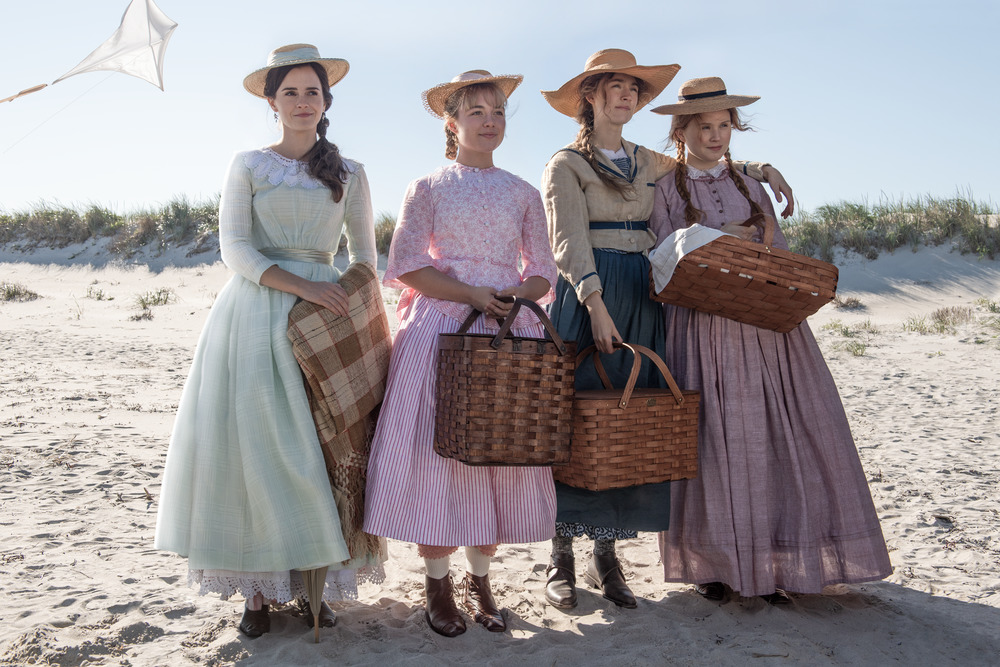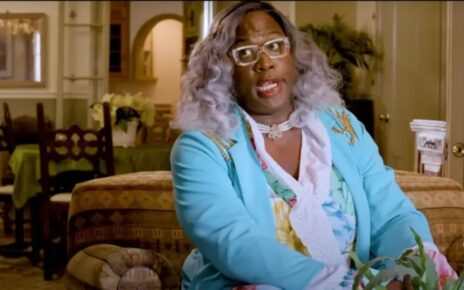Greta, you know I love you and I understand the subject is feminine; it’s right there in the title. I see that … but were you genuinely hoping that men wouldn’t come to your film? Sure, I don’t think anybody expected Little Women to include a scene of Bruce Willis fending off mercenaries with an uzi, but neither did I expect a movie aimed at adults to be measured in gaggles and hugs.
Despite the overwhelming female perspective, Little Women had trouble locating its heart. The entire first half of this film was less about plotpoints and more like a “how to” seminar in emotional support. Most of the direction seemed to involve somebody erring, somebody almost getting mad, and then a resolution involving a physical uniting of all the females in the general vicinity (at any given time there were between two and 4,000). The film opted for several periods of incoherent crosschat interrupted only by the occasional, “psst, say the line that’s in the book!” Yeah, fans of Louisa May Alcott may be caught up in this edition of the classic, but for some of us, much of the film resembled what we imagine goes on when girls all head to the restroom at the same time.
In case you’ve forgotten the plot of the Louisa May Alcott classic, four sisters growing up during the civil war exchange smiles, clothing, lamentations, and personal philosophies while waiting for life to happen. Jo (Saoirse Ronan) is the de facto leader of the four; all sibs acknowledge that Jo’s writing gifts make her the most likely to achieve adult independence without marriage. Meg (Emma Watson) is probably just happy not to be attached to Ron Weasley. Florence Pugh, having the biggest year of her life, plays Amy, the artist of the bunch. And people who know the tale will not be entirely surprised that Beth portrayer Eliza Scanlen is the only name of the acting quartet we don’t know.
The March parents (Laura Dern and Bob Odenkirk) are mostly absentee. Dad’s at war while mom probably just can’t live down being referred to as “Marmee.” Rounding out this poor-but-happy phalanx of endearment is across-the-way neighbor Laurie (Timothée Chalamet). Like Robin Hood re-tellings that give varied weight to the subcast depending on orator, the role of Laurie is one that varies between “most important character in the tale” and “pathetic afterthought.” This Chalamet version is somewhere in between. Little Women gave him the opportunity to hit on all the March sisters except for Beth (of course), but at the end of the day Timothée Chalamet still looks like he’s 13 which detracts significantly from how much we take his conclusion seriously.
Little Women is essentially the story of Jo’s transitional March into adulthood. One constantly asks if Jo’s sisters support or impede her progress. I think a good case can be made for either. Every Little Women concludes that family is better than solitude, yet one can’t help but notice how much better off Jo might be if Amy weren’t a jealous punk.
I certainly enjoyed this Little Women better than the last version I saw. However, that’s damning with faint praise; in the last version I saw, Laurie was played by that foppish kid from High School Musical. Speaking of musicals, this Little Women feels like a musical without the music.
Little Women did find its heart eventually; there were several moving scenes in Act III, but the run up to such was, quite frankly, painful. The direction could be viewed from space, with clear cues of “Ok, gaggle” and “stop the gaggling to let so-and-so state her punchline.” And this version really felt like the Marches were a Trek-like Borg of one collective hive-minded personality that needed to physically reconvene every two or three scenes. I’m not saying it’s bad – clearly the March family that writer/director Greta Gerwig wanted to show was both emotionally and physically close, but viewers examining a film for personality conflict aren’t often wowed by a constant dogpile of love. KnowwhatI’msayin’?
With family, it’s all good, of course
Until you track pain to its source
With sibs and relations
Causing such degradations
Maybe Jo should start using the force
Rated PG, 135 Minutes
Director: Greta Gerwig
Writer: Greta Gerwig
Genre: Alienating men, plots
Type of being most likely to enjoy this film: Your 13-year-old daughter who just read the book for the first time
Type of being least likely to enjoy this film: The kind of person who has already seen five different screen versions of this tale




